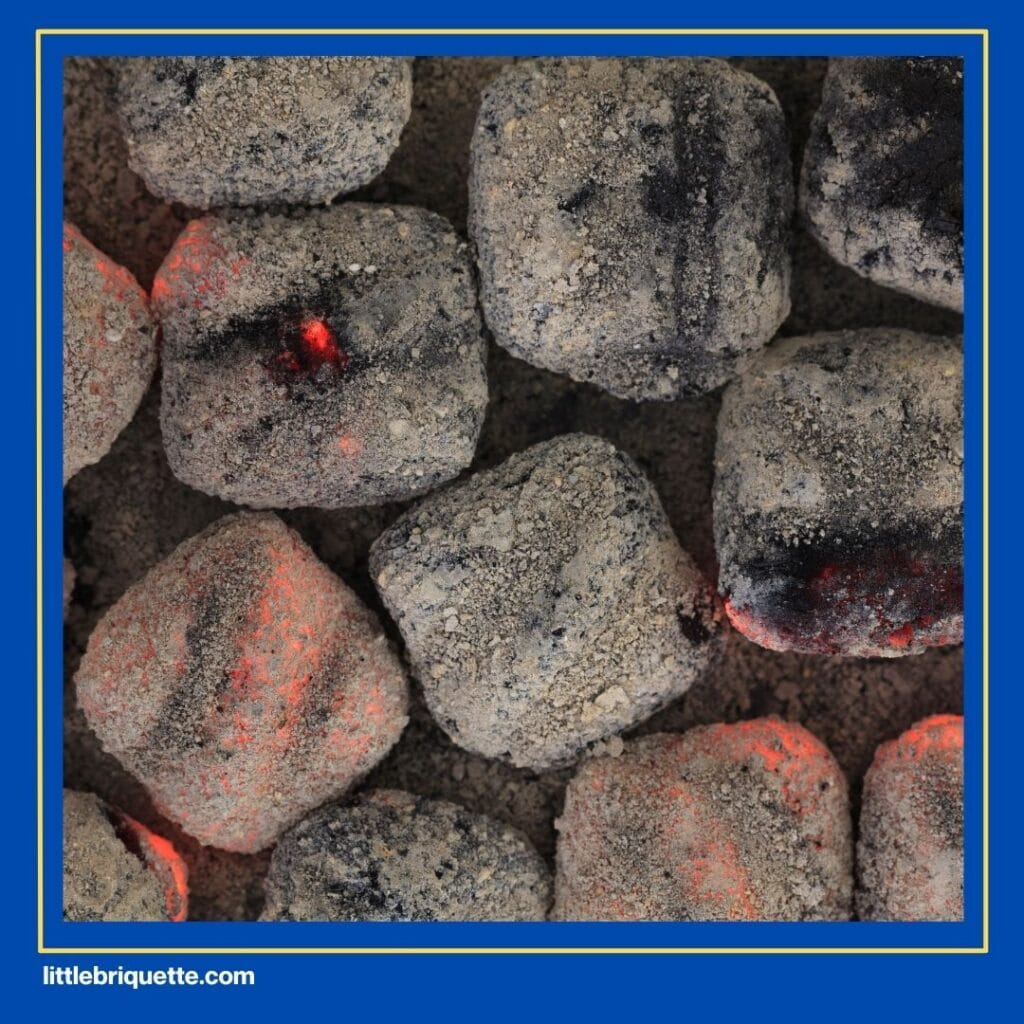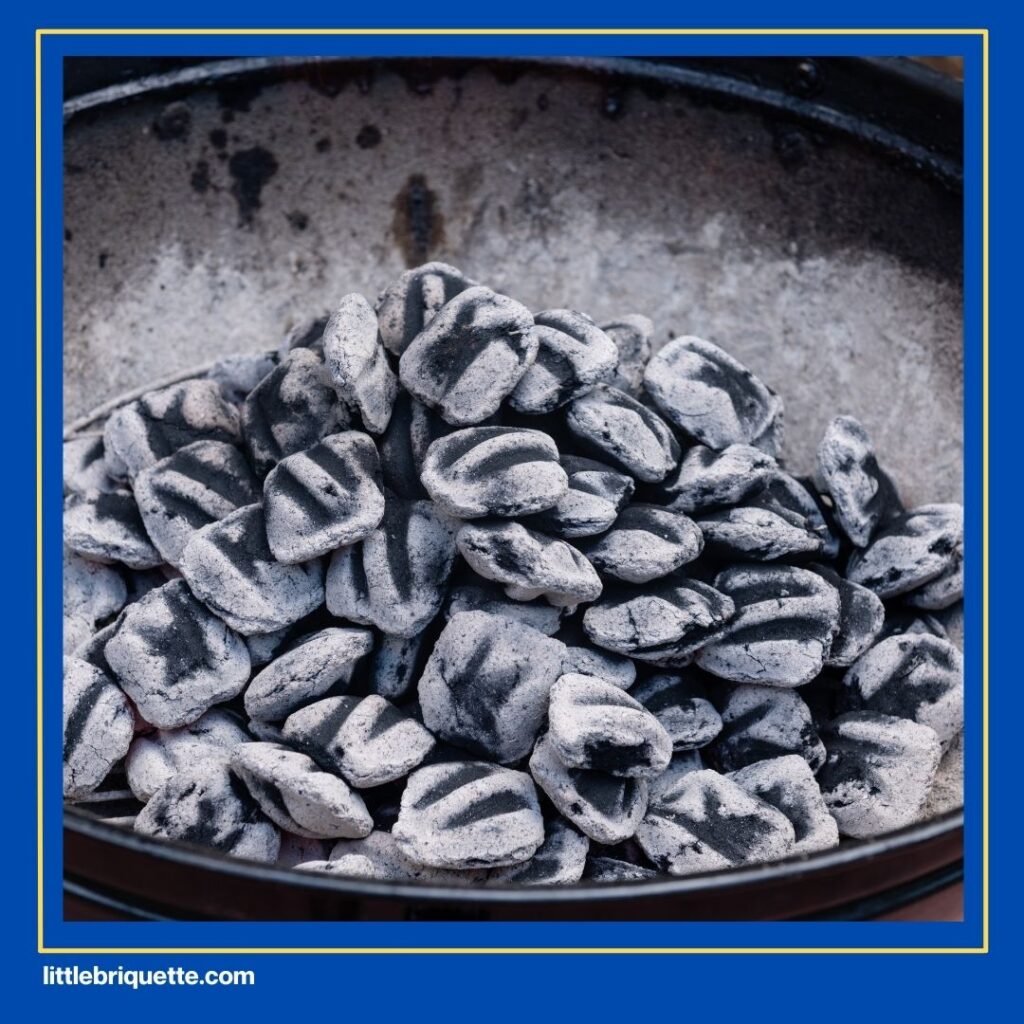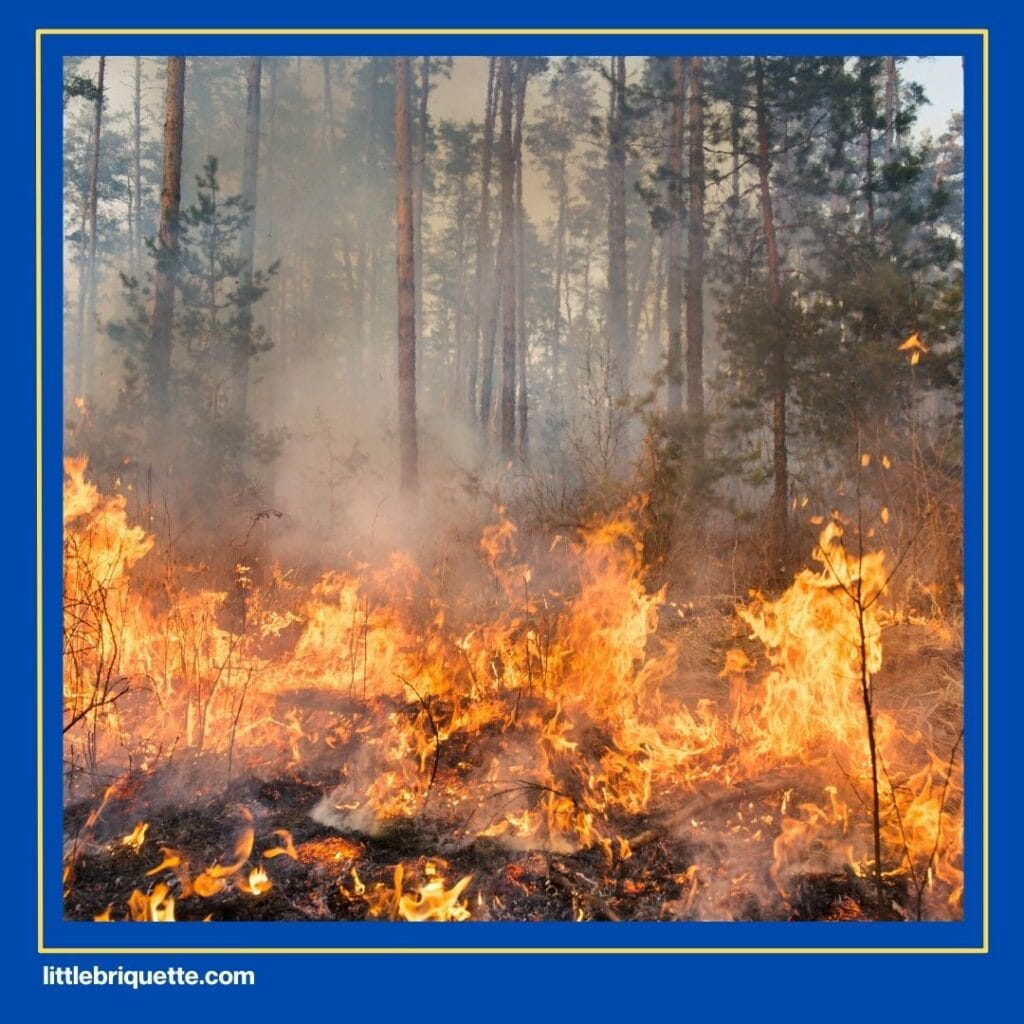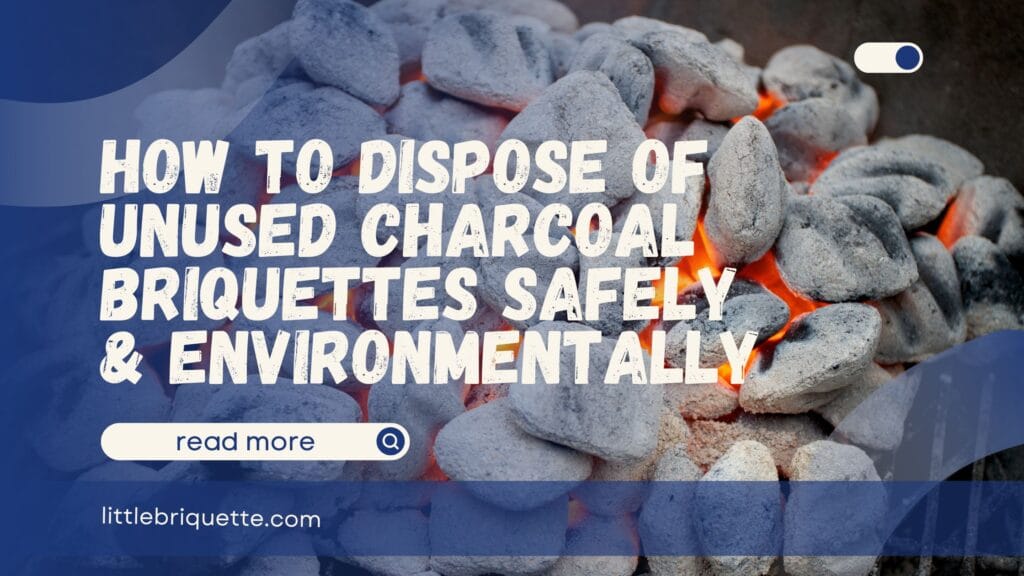Coconut charcoal briquettes are an eco-friendly choice often used for cooking or barbecuing. However, many people are unaware that the proper way to make them is also crucial to preserve the environment. If coconut charcoal briquettes are not disposed of properly, they can harm the environment, such as contaminating the soil, causing fires, or polluting water channels. Therefore, it is important to understand how to dispose of unused charcoal briquettes safely and environmentally, which will be explained in detail in this article.
How to Dispose of Unused Charcoal Briquettes
Making coconut charcoal briquettes the right way is an important step in protecting the environment and avoiding potential hazards. Improper disposal of coconut charcoal briquettes can have harmful effects on both nature and human health.
In this section, we will discuss three main steps to dispose of coconut charcoal briquettes safely: ensuring the briquettes are completely cool, using the proper trash bin, and avoiding disposal into water channels. By following these correct steps, you will not only keep the environment clean, but you will also help reduce the risk of fire and pollution.
Ensure the Briquettes Are Cool

The first step in how to dispose of unused charcoal briquettes is to make sure that the briquettes are completely cool before disposal. Charcoal briquettes that are still hot or smoldering can pose a fire hazard, even if thrown into the trash or placed in an open area. To ensure the briquettes are safe to handle, allow them to cool for several hours after use. If you want to speed up the cooling process, you can pour a little water over the briquettes, but make sure no embers or flames remain before discarding them. Ignoring this step can be disastrous, as still-hot briquettes can cause fires that are damaging.
It’s important to understand that even after use, coconut charcoal briquettes can continue to emit heat for a long time. Especially if disposed of improperly—such as near flammable materials—this heat can be a fire risk. Always make sure that the briquettes are completely cool and do not contain any embers that could endanger the surrounding environment. As a precaution, store the coconut charcoal briquettes in a safe place away from children and pets, and ensure you dispose of them at the appropriate time to avoid any potential dangers.
Use a Proper Trash Bin

After ensuring the coconut charcoal briquettes are cool, the next step is to dispose of them in the right trash bin. Do not throw the briquettes directly into your household trash without proper preparation. The appropriate trash bin should be covered and fire-resistant, such as a metal or thick plastic container. Make sure to place the briquettes in the prepared container to avoid polluting the surrounding environment and to prevent the risk of fire.
If you have an excessive amount of unused coconut charcoal briquettes, consider contacting a waste processing facility or a waste collection center that can handle combustible materials or by-products from burning. Some areas also have recycling facilities that accept certain types of waste, including used charcoal briquettes. By disposing of the briquettes in the correct bin, you help prevent pollution and contribute to better waste management. Avoiding careless disposal helps reduce the burden of waste management problems in your community.
Do Not Dispose of in Waterways

One common mistake is disposing of coconut charcoal briquettes in waterways, such as drains or rivers. This can be harmful to the environment because coconut charcoal briquettes contain chemical residues that do not break down easily and can pollute water, damaging ecosystems. Additionally, briquettes disposed of in water channels can cause blockages, further complicating water management in the area.
Therefore, it is crucial not to dispose of coconut charcoal briquettes in any waterways or open bodies of water. If no designated trash bin is available, store the used briquettes in a safe place, away from water channels, until you can dispose of them properly. By taking this step, you help maintain the cleanliness of water channels and prevent damage to aquatic ecosystems, which can impact both human health and wildlife.
Read Also: How to Use Charcoal Briquettes for Effectively Barbecue
Environmental Impact of Improper Disposal of Coconut Charcoal Briquettes
If the proper steps for how to dispose of unused charcoal briquettes are not followed, there are several negative environmental impacts that can result.
Air and Soil Pollution

Improper disposal of coconut charcoal briquettes, especially in open areas, can lead to air and soil pollution. The remnants of combustion contained in the briquettes can contaminate the soil and air with harmful particles, negatively affecting the local environment. Soil contaminated with chemical byproducts from the burning process can reduce soil fertility and disrupt local ecosystems. Meanwhile, the smoke released from improperly discarded charcoal briquettes can spread into the air, polluting the air quality around the area. This pollution can potentially cause respiratory issues and lower the quality of life for people living nearby.
Fire Hazards

Coconut charcoal briquettes that are still hot or smoldering pose a significant fire risk if discarded improperly. Even after they seem used up, briquettes that have not fully cooled down can continue to emit heat for a long period of time. If these hot briquettes are thrown into unsafe areas, such as near flammable materials or in open spaces, they can ignite a fire. This can cause damage to property and endanger the safety of people nearby. It is therefore essential to ensure that the briquettes are completely cool before disposal.
Health Risks

Improper disposal of unused coconut charcoal briquettes can also have health impacts on both humans and animals. The smoke generated by burning charcoal briquettes may contain harmful substances, such as carbon monoxide and hydrocarbons, which can impair the respiratory system if inhaled in large amounts. Additionally, the chemical residues in improperly disposed briquettes can contaminate the surrounding environment, including the soil and water. This contamination can have long-term health risks, affecting both humans and wildlife.
Read Also: Smart Tips for Buying Charcoal Briquettes in Bulk at the Best Price
The Center for High-Quality Coconut Charcoal Briquettes Production
Using low-quality coconut charcoal briquettes also contributes to environmental and health problems. Briquettes that are poorly made often contain additives or chemicals that can release more toxins when burned or discarded improperly. Therefore, it is important to choose high-quality coconut charcoal briquettes that are produced with care and natural materials. High-quality charcoal briquettes, such as those from Little Briquette, are certified for their environmentally friendly production processes. These briquettes use natural raw materials and a careful manufacturing process, minimizing harm to both the environment and human health.
For affordable prices and fast shipping, you can contact the admin directly through the provided contact number here.

